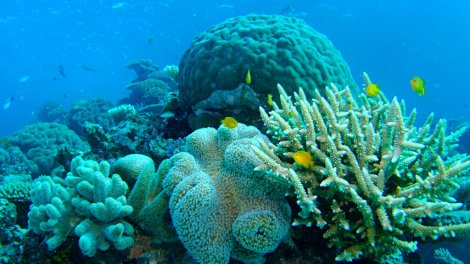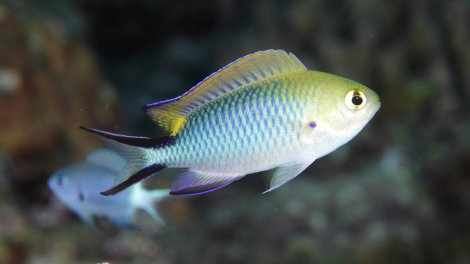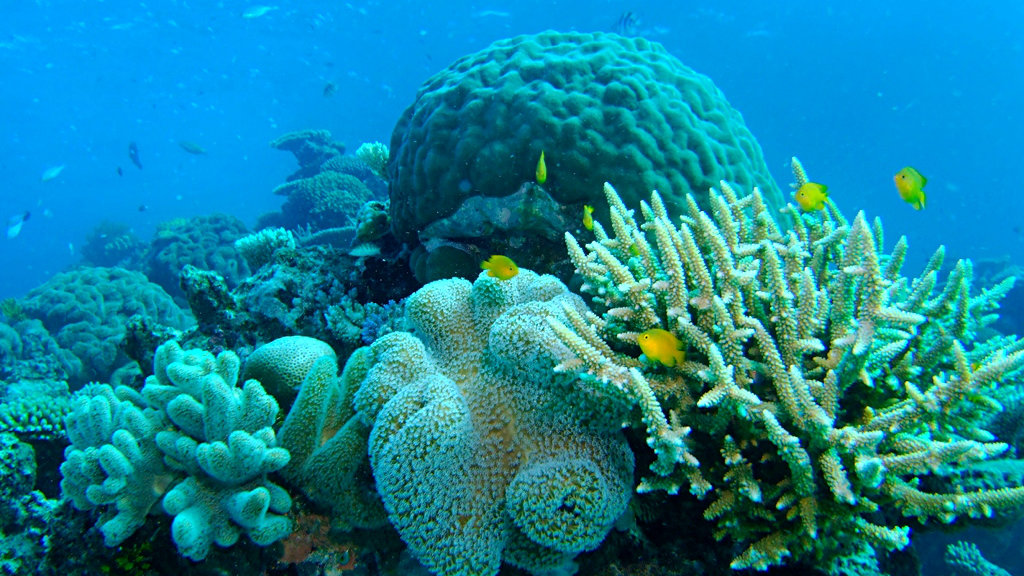
Geir FriestadWatch out, these hooligans will win a game of chicken or literally die trying.
When we were teens, we rebelled by stealing printer paper from the school library and staying out 15 minutes past curfew. Damselfish, however, really take that burn-the-world attitude to the next level.
A new study out this week in Nature Climate Change suggests that instead of making the fish scared for their very lives, ocean acidification lulls the little buggers into a false sense of security. Rather than being frightened by the smell of predators, the juvenile damselfish subjects of the experiment were more likely to be attracted, leading researchers to say: Dang it, teenagers! Didn’t we warn you about the lionfish in the cool leather jacket?
Researchers gathered fish from sites near seafloor CO2 vents off of Papua New Guinea, where the water is already more acidic than the rest of the ocean — though the researchers predict that the rest of the ocean could hit similar levels by 2100. The four species studied, common varieties of reef-dwelling damselfish and cardinalfish, were placed in tanks that were filled with various streams of water, some straight seawater, others conditioned to smell like predators.
Instead of being damselfish in distress, the CO2-habituated fish spent up to 90 percent of their time in the predator-stinking stream. In contrast, the control fish pretty much only hung out in the undoctored water like little goody-two-shoes. Other experiments involved chasing the fish around with a pencil, then seeing how quickly they emerged from a safe hiding spot; again, most of the acid-head fish just rolled their eyes.

Klaus StiefelSo moody. Thinking of getting its septum pierced.
Basically, scientists think the increased CO2 is messing with the fish neurotransmitters needed to make sound decisions. If the same effect is present in other juvenile fish, the problem could quickly compound: Increased fearlessness may lead to increased predation of different species, which could take a real toll on future fish populations throughout the ecosystem. From The Economist:
Experimental studies have previously shown that carbon dioxide-induced behavior increases mortality in fish newly settled at a reef by fivefold. As the three sites studied were small, Dr Munday and his team believe that fish who were casualties of their own rash behavior could have been easily replaced. … But as ocean acidification increases, reefs will not be able to recruit new inhabitants from unaffected areas so easily.
Great. Adding dumb teenage fish to the list of ways climate change and its evil twin ocean acidification are messing up the ocean: Fish anxiety, blindness, and bodily dissolution, plus possible total ecosystem collapse. Just no one give those fish a Twitter account, or they’ll probably start sending terrorist threats to airlines.



